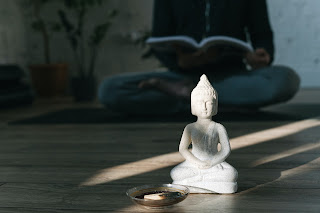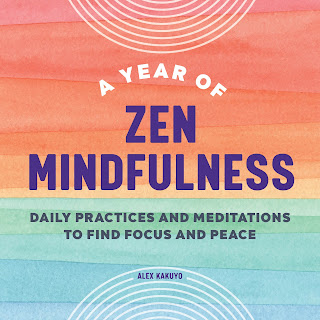I love Buddhist rituals. I love their history. I love their meaning. I love their ability to transcend time and space.
Thus, my practice might seem arcane and esoteric to the casual observer. I wear robes. I prostrate before my altar. I chant and study sutras. Each day, I go to the meditation hall and live as Buddha lived. I do this so when I leave the meditation I can continue living as he lived; ending suffering for myself and all beings.
That said, there are times in life when these practices become burdensome, like wearing a fancy suit on a hot day. The fault lies not with the training, but with me.
It requires strength to carry the rituals from one day to the next, keeping them alive for the next generation. And there are days when my strength is lacking.
There are days when my mind is so frazzled, my body is so tired, and my spirit is so hurt by world events that just entering the meditation hall is a struggle.
In those moments, I take my Buddhist practice, and I strip it down to nothing. I take off the robes. I remove the incense. I cast off the chanting and the sutra study. The prostrations are the last fig leaf to fall. And when they do, I present myself humbled and (figuratively) naked to the Buddha.
Now that I'm naked, I'm lighter, freer, and able to move through the meditation hall unencumbered by expectations. But I also have nothing to offer.
Without robes, I can't show my love of tradition. Without chanting, I can't show my knowledge of the Way. Without bowing, I can't commune with all living things.
Without the trappings of Buddhism, I'm left with nothing but Buddha. Without the symbols of my practice, I can offer him nothing but myself.
So, that's what I do. I sit in front of my altar with nothing but Buddha and myself. I breathe deeply and I wait for Buddha to reject me.
But he doesn't.
He accepts me 100% as the confused, misguided person that I am. He sits with me, quiet and unmoving until I'm ready to get up and go back out into the world.
The next time I enter the meditation hall it's back to business as usual. I wear my robes, I do my bows, I chant the sutras; following the example of the Buddhist teachers who came before me.
I don't do these things because they're required. Rather, I do them as a way to say, "thank you". I do them to venerate Buddha, his teachings, and the refuge they provide in a cruel, chaotic world.
Namu Amida Butsu



Most inspiring, thank you.
ReplyDelete